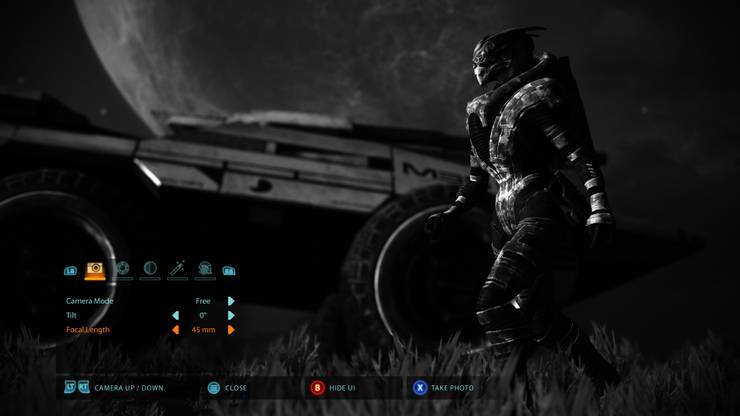Fans of the Mass Effecttrilogy know the amount of gear Shepard receives from opening crates and defeating enemies can be overwhelming, and too much of it can often clutter Inventory. Players can loot weapons, armor, weapons mods, and special ammo in Mass Effect just by progressing the main story, defeating enemies, and completing side missions. The further along Shepard progresses in their mission, the better gear they will find, making many early game options obsolete and unnecessary. When players no longer want certain gear in Mass Effect, they have two options: sell it for credits, or dismantle it into omni-gel. Both can be viable for inventory management, but players will want to be careful not to sell or destroy anything that might be useful later.
While there is no way to destroy or sell necessary plot items in Mass Effect, as these do not go into Inventory, players will want to make sure they have enough high-level items to equip their entire squad with decent gear. Generally, it is safe for players to sell as much lower-level armor and weapons as they feel comfortable getting rid of, and convert lower-level mods and ammo to omni-gel. Following this method, players can get both maximum credits and maximum omni-gel fairly early in the game and will only need to keep the best of the best equipment in Inventory. Here’s how players can decide what gear to keep, what to sell, and what to convert to omni-gel in Mass Effect.
How to Decide What Gear to Keep in Mass Effect

Generally, when looting crates and containers in Mass Effect, Shepard should plan to keep the highest-level equipment they find at any given time. Every weapon, armor, mod, and ammo type includes a Roman numeral after its name to let players know its level. Equipment can reach up to level X (10). Higher-level items have improved stats and tend to be available as Shepard’s level increases.
Shepard should keep the highest-level weapons and armor they have. They should make sure to outfit their entire squad at the lockers aboard the Normandy with the best possible gear. Once everyone has been accounted for, there is not much need to keep the rest, especially if the stats for these items do not compare. They may also want to save a set of good gear for Liara, as she is likely to be the last recruited.
Players should make sure to check vendors for new stock and purchase stronger weapons and armor for their squad. It can be particularly difficult to find better armor for Tali and Garrus, so players will want to pick up and hold onto any they find. Predator armor is also exceptional and usually worth keeping, though if Shepard finds or purchases higher-level ones, lower-level Predator armor can be sold for a good price.

Biotic Amps and Omni-Tools are worth having, but good ones are rare to loot. These items increase biotic and tech power potency and duration and decrease cooldown times. Shepard should keep any they purchase, and only sell the lower-level ones when they have stronger options for their biotic and tech crewmates.
Inferno, Hammerhead, Explosive, and Tungsten/Shredder Ammo tend to be the most universally applicable options, so it may be a good idea for Shepard to keep several of those on hand at a time. This is especially true for Tungsten and Shredder, as they will need to swap between the two when facing synthetics and organics. Other ammo types, like Proton, Shield-Piercing, and Snowblind, force players to take a penalty and are less useful in most combat situations.
How to Decide What Gear to Sell or Convert in Mass Effect

In general, players are likely to receive multiple copies of the same weapons, armor, mods, and ammo. Once the entire crew has been equipped, it is usually safe to sell off or convert the remaining duplicates. For good inventory management, players should sell low-level gear they are no longer using. Because they will always find higher-level gear as they level up, it is not likely they will go back and use any of these lower-level items later.
One strategy some fans use is converting lowest-tier mods and ammo to omni-gel and selling lowest-tier weapons and armor. As weapons and armor tend to fetch a higher price than ammo and mods, and as there tend to be more mods and ammo found via looting, this can maximize both the amount of credits Shepard earns and the amount of omni-gel available for unlocking crates, solving puzzles, and repairing the Mako.
Alternatively, players can start by selling everything they aren’t using until they reach the credit cap. Then, they can convert the remaining surplus to omni-gel. They can also reverse this, getting as much omni-gel as possible first and then selling off higher-level equipment at higher prices. Both are viable.

When selling gear, Shepard can get the highest price for their loot by selling to Dr. Michel at the Clinic on the Citadel. If it is possible to stop there every time, players should make a point to do so to maximize their profits.
If players ever make a mistake and sell something they did not mean to sell, it is always possible to buy it back. Most vendors will keep the last 20 items Shepard sold them so they can easily find it and purchase it again in the event of a mistake or later need.
In Mass Effect: Legendary Edition, players will have the option to mark any item as Junk. This will make it easier to sort through gear and sell things in bulk, saving time and effort.
Mass Effect: Legendary Edition launches May 14 for PC, PlayStation 4, and Xbox One, with forward compatibility on PlayStation 5 and Xbox Series X/S.
About The Author



